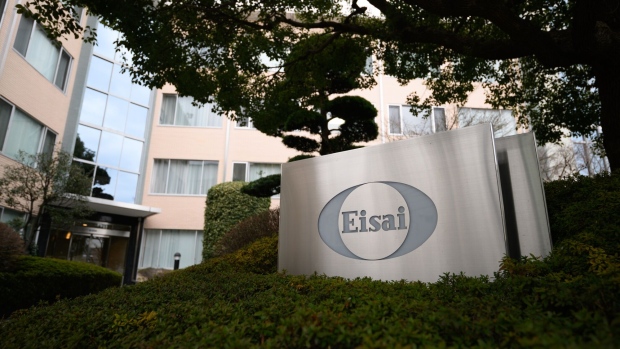Aug 21, 2023
Eisai Azheimer’s Drug Set to Win Japanese Approval, Following US
, Bloomberg News

(Bloomberg) -- Eisai Co.’s breakthrough Alzheimer’s disease drug is poised to gain the backing of Japanese regulators after the medicine was fully cleared in the US last month.
A panel that advises Japan’s health ministry recommended approval of Leqembi, according to a government statement Monday. The ministry relies on the expert panel’s review before clearing new medicines and generally follows its recommendations.
Japan will potentially become the second country to sign off on Leqembi, the first drug to slow progression of the mind-robbing disease, after Eisai and partner Biogen Inc. gained full US approval for it last month. While Eisai set the price of the drug at $26,500 a year in the US, the cost in Japan will be capped by the government later in the year.
Jefferies Japan Ltd. analyst Stephen Barker assumes Japan’s reimbursement to be about ¥2 million ($13,697) per year, according to his note Monday.
An approval in Japan would mark a milestone for treating dementia in the rapidly aging society, where more than 6 million people are living with it. Alzheimer’s disease is the most common type of dementia, which afflicts over 55 million people worldwide and is expected to almost double every 20 years, according to Alzheimer’s Disease International.
Eisai is also seeking approval of the medicine in other markets, including Europe and China. The company forecasts revenue from Leqembi to reach ¥1 trillion in fiscal 2030.
The drug, also called lecanemab, is among the most potent in a new generation of antibodies that help clear amyloid, a toxic protein that slowly builds up in the brains of Alzheimer’s patients. Last fall, it became the first medicine to clearly slow the disease in a large trial. Patients who received it declined at a 27% slower rate over 18 months than those given placebo treatment.
Leqembi’s full US approval last month, following an accelerated clearance process in January, is expected to spur broader insurance coverage in the world’s biggest pharmaceutical market. The approval also came with testing requirements and strict side effect warnings.
--With assistance from John Lauerman.
©2023 Bloomberg L.P.


